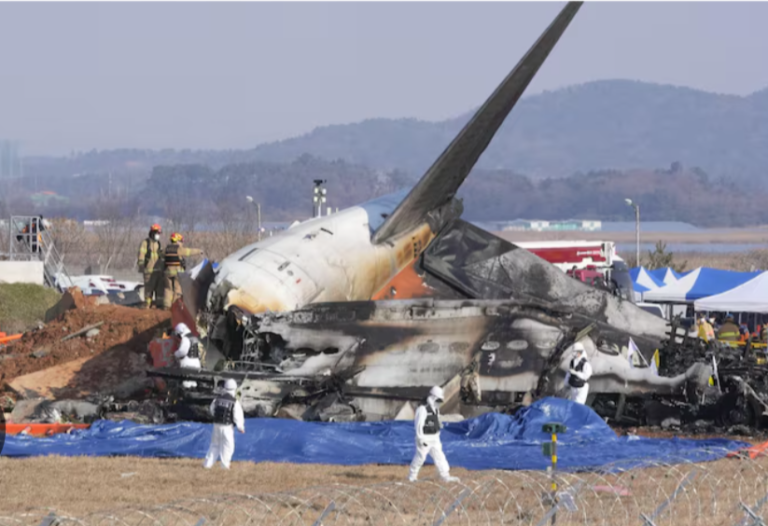Pakistan’s UNSC Agenda: Elevating the Kashmir Issue in 2025.
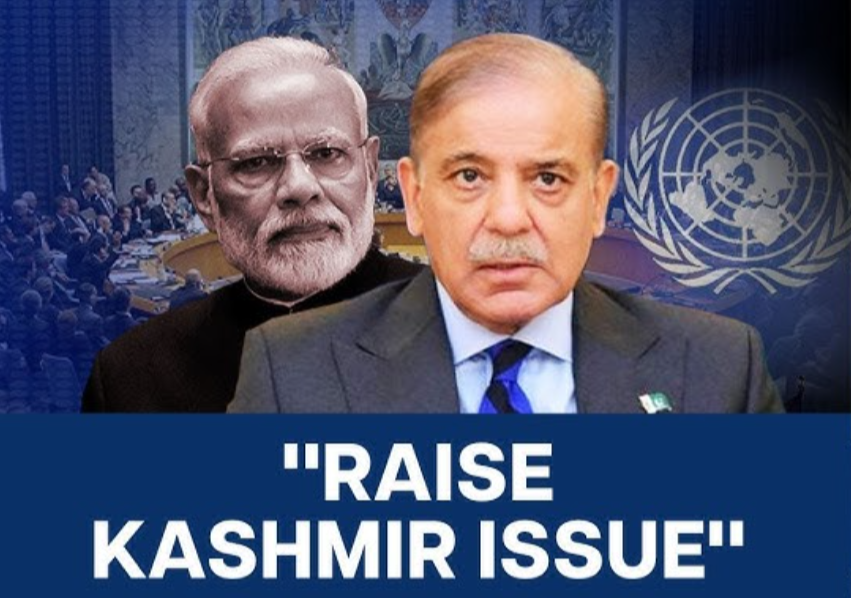
Pakistan’s New Year Resolution: Raising the Kashmir Issue at the UNSC
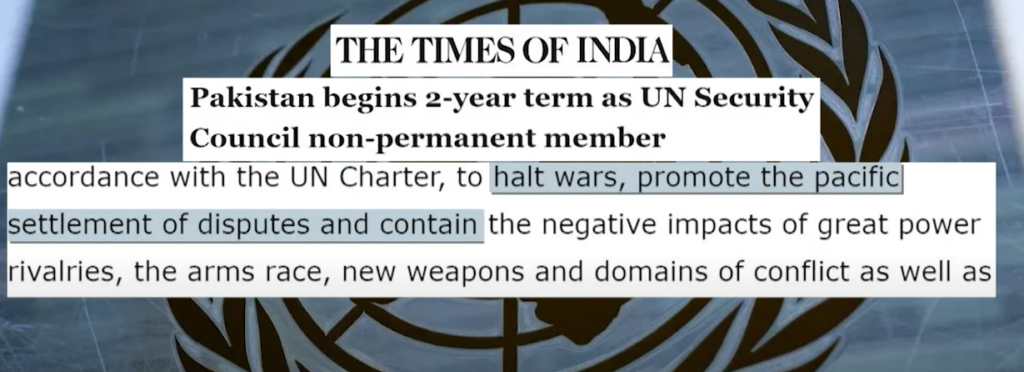
On January 1, 2025, Pakistan commenced its two-year tenure as a non-permanent member of the United Nations Security Council (UNSC). This marks Pakistan’s eighth term on the council, reflecting its longstanding commitment to international diplomacy and peacekeeping. A central component of Pakistan’s agenda during this term is to bring renewed international attention to the Kashmir issue, a longstanding and contentious matter between Pakistan and India.
However, on January 2, 2025, Deputy Prime Minister and Foreign Minister Bilawal Bhutto Zardari interacted with the media, discussing Pakistan’s economic progress and diplomatic efforts.
In his address to the United Nations General Assembly (UNGA) on September 27, 2024, Prime Minister Shehbaz Sharif emphasized the Kashmir issue, urging India to reverse its 2019 actions concerning Article 370 and to engage in dialogue for a peaceful resolution in line with UN Security Council resolutions.
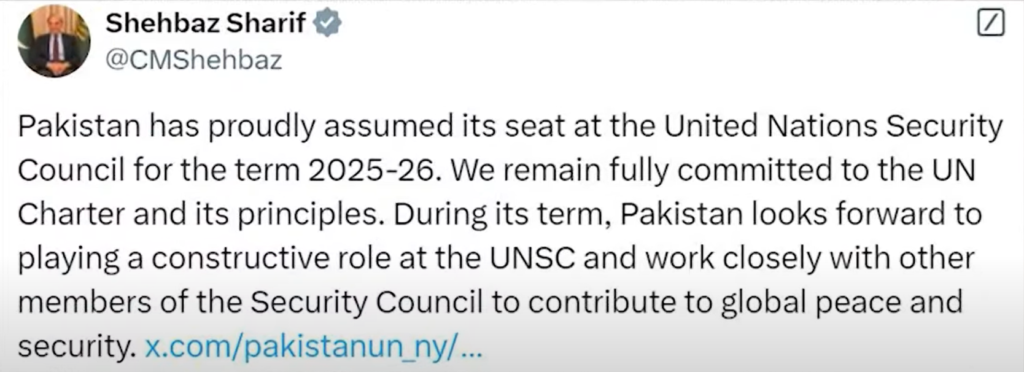
Sharif highlighted the ongoing struggles of the Kashmiri people, drawing parallels with other global movements for self-determination. He stated, “Similarly, like the people of Palestine, the people of Jammu and Kashmir too, have struggled for a century for their freedom and right to self-determination.”
Additionally, Sharif expressed concerns about the treatment of Muslims in India, alleging that a “Hindu supremacist agenda” seeks the subjugation of 200 million Muslims and the obliteration of India’s Islamic heritage.
India responded firmly to Sharif’s statements, reiterating that Jammu and Kashmir are integral parts of India and urging Pakistan to address its internal matters instead of making unfounded allegations.
Historical Context of the Kashmir Issue
The Kashmir conflict dates back to the partition of British India in 1947, resulting in the creation of two independent nations: India and Pakistan. Both countries laid claim to the princely state of Jammu and Kashmir, leading to multiple wars and ongoing tensions. The region has been a flashpoint for over seven decades, with both nations administering parts of the territory but claiming it in its entirety.
Pakistan’s Objectives at the UNSC
As a non-permanent member of the UNSC for the 2025-2026 term, Pakistan aims to:
- Internationalize the Kashmir Issue: Pakistan seeks to bring the Kashmir dispute to the forefront of international discourse, highlighting what it describes as human rights violations and the need for a resolution in accordance with UN resolutions.
- Advocate for Self-Determination: Emphasize the right to self-determination for the people of Jammu and Kashmir, advocating for a plebiscite under UN auspices.
- Address Regional Security Concerns: Highlight the implications of the Kashmir conflict on regional stability and security, particularly in the context of nuclear-armed neighbors.
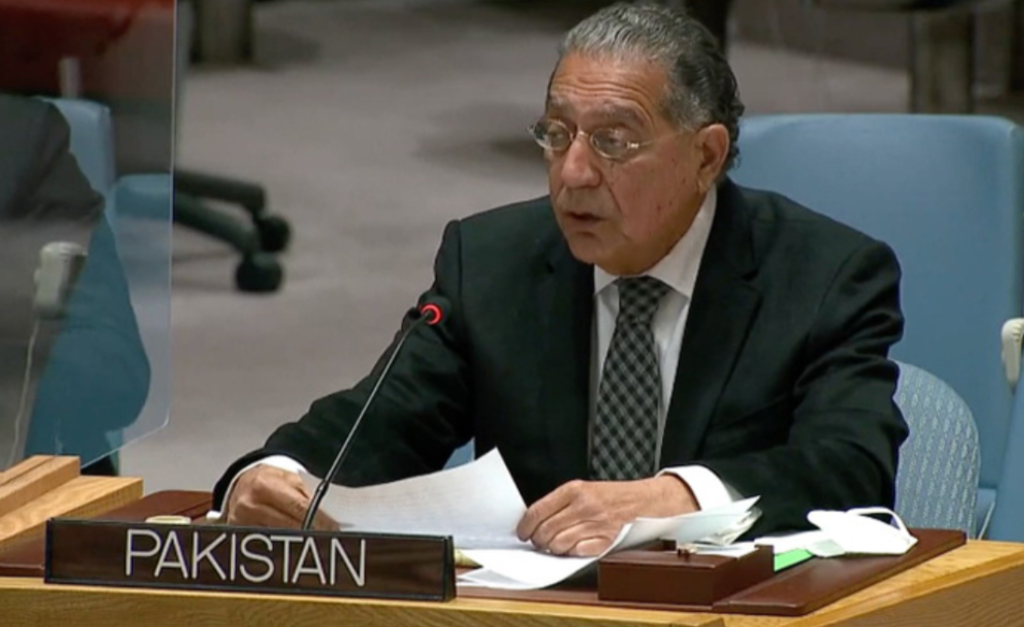
Challenges and Geopolitical Dynamics
While Pakistan is poised to raise the Kashmir issue at the UNSC, several challenges persist:
- India’s Stance: India maintains that Jammu and Kashmir is an integral part of its sovereign territory and views any external discussion on the matter as interference in its internal affairs. India’s growing global influence and diplomatic relations may counter Pakistan’s efforts.
- Global Polarization: The current geopolitical climate is marked by divisions among major powers, which could impede consensus-building on contentious issues like Kashmir. The fractured state of global politics and increasing polarization within the council may test Islamabad’s ability to navigate its diplomatic priorities.
- UNSC Dynamics: As a non-permanent member, Pakistan does not possess veto power, limiting its ability to unilaterally influence council decisions. Building alliances and securing support from other member states will be crucial.
Strategic Approaches
To effectively raise the Kashmir issue, Pakistan may consider the following strategies:
- Highlighting Human Rights: Present reports and evidence of alleged human rights violations in Kashmir to appeal to the international community’s conscience and legal frameworks.
- Leveraging Multilateral Forums: Utilize other international platforms, such as the Organization of Islamic Cooperation (OIC), to build a broader coalition advocating for Kashmir.
- Diplomatic Engagement: Engage in robust diplomacy with UNSC members, particularly the permanent five (P5), to garner support for its position on Kashmir.
Potential Implications
Pakistan’s initiative to raise the Kashmir issue at the UNSC could lead to several outcomes:
- Increased International Attention: Successfully bringing the issue to the UNSC agenda may lead to greater global scrutiny and pressure on India regarding its policies in Kashmir.
- Bilateral Tensions: India may perceive Pakistan’s actions as provocative, potentially escalating diplomatic and military tensions between the two nations.
- Influence on Peace Processes: International involvement could either facilitate dialogue and negotiation or complicate existing peace efforts, depending on the responses of the involved parties.
Pakistan’s tenure as a non-permanent member of the UNSC presents an opportunity to advance its foreign policy objectives, particularly concerning the Kashmir issue. However, the complex geopolitical landscape, coupled with the dynamics within the UNSC, necessitates a nuanced and strategic approach. The coming years will reveal the effectiveness of Pakistan’s efforts and their impact on the longstanding Kashmir conflict.



